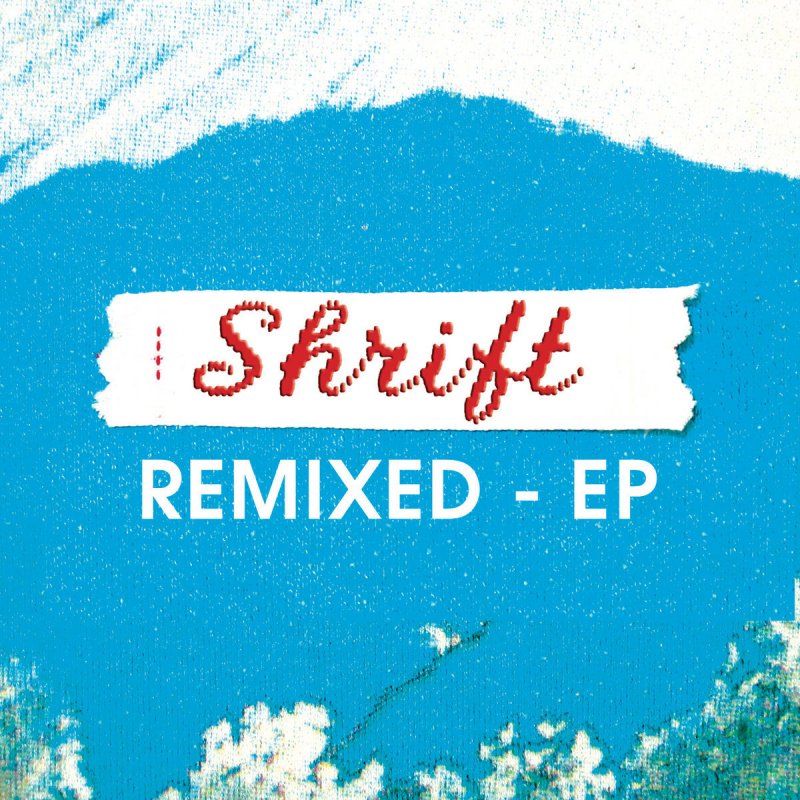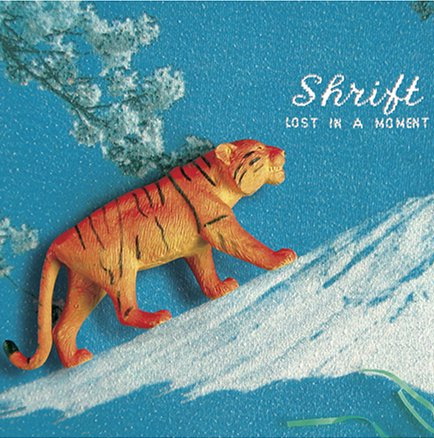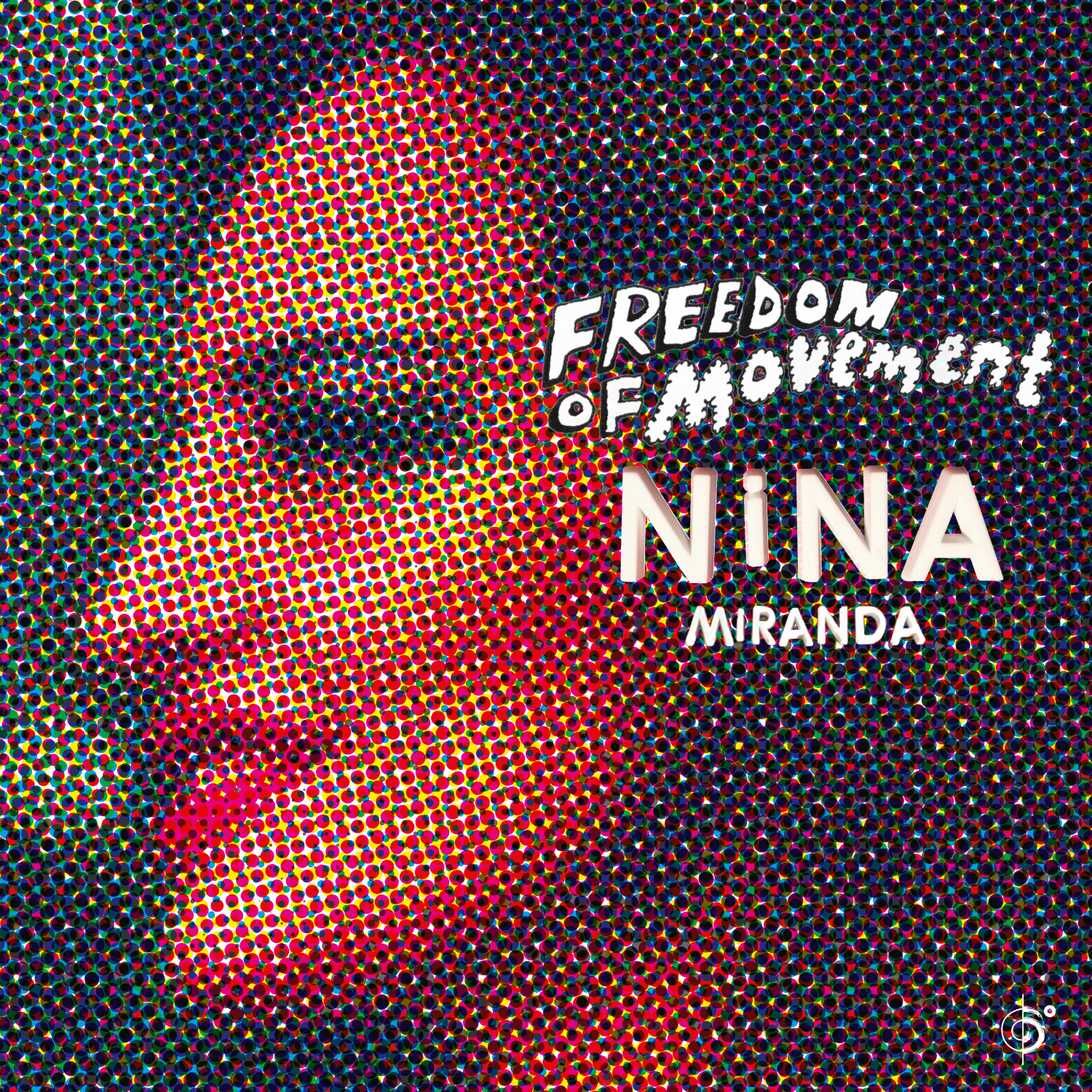
SHRIFT
Maybe you’d like to find something a bit warmer and more elegant than the latest musical fare – maybe even something a little bit mysterious. Maybe you’re looking for songs that appear in a fresh form, an effortless acoustic and electronic experimental fusion of musical genres. Maybe a music that draws you under its spell with gentle artistry and seductive playfulness, that lulls you into a blissful alpha state before startling you softly with an unexpected burst of quiet brilliance. In that case, the new album by Shrift may be exactly what you’ve been waiting for.
The aptly titled Lost in a Moment is Shrift’s first album, but it’s hardly a debut for the group’s two members, singer/songwriter Nina Miranda and multi-texturalist/producer Dennis Wheatley. Miranda is a charter member of the celebrated British group Smoke City, which has scored European hits with its unique blend of bossa nova, trip hop, jazz, reggae and funk. In 1997, Smoke City provided the soundtrack to a TV commercial for Levi’s jeans, and videos for their songs “Underwater Love,” “Mr. Gorgeous” and “Águas de Março” have received regular TV airplay. Miranda has lent her unique voice and words to projects by such world music luminaries as Bebel Gilberto, Nitin Sawhney, Daniel Jobim, Jah Wobble and Da Lata. Her singing style was formed by a variety of influences, most obviously the divided childhood she spent shuttling between homes in Britain and Brazil. She is equally comfortable singing in English, Portuguese or French, and she shifts between those languages several times during the course of Lost in a Moment.
Miranda was introduced to her musical partner Dennis Wheatley shortly after completing the secondSmoke City album. Wheatley is best known for his work with Atlas, a British electro band with a history of taking existing elements (Brazilian singers, string quartets, Randy Newman’s “Baltimore”) and whipping them up into delectably, danceably new ethno-electro mixtures. Miranda was familiar with his work under the Atlas moniker and was drawn in by what she calls the “depth of atmosphere and quality of sound.” She found his work “cinematic and otherworldly,” and in short order the two were building songs together in a series of London recording spaces – none of them conventional. Some tracks were recorded in a room overlooking the Thames river, some in a flat located directly over the Farringdon tube station, and some in Wheatley’s home studio. All of these environments affected the sound of Shrift’s music, sometimes directly. On one track, listen closely and you’ll hear the sounds of water lapping at the riverbank.
The duo’s first two creations, the trippy, discoey “Airlock” and a moodier, more haunting number titled “Blue,” have been featured on a pair of Six Degrees compilations. “Airlock,” their contribution to the acclaimed Traveler ’03 collection, caught the attention of All Music Guide critic Johnny Loftus, who called readers’ attention to Miranda’s “whispers and coos” and Wheatley’s “stuttering beats and a manipulated sample that sounds like a ’70s movie theme played backwards.” Miranda recalls that during the recording of that track, she imagined herself as “a beautiful, down-at-the-heels alcoholic forty-year-old black Brazilian woman, singing at a nightclub in the late Seventies.”
In 2003 Six Degrees released Torch, a compilation of modern torch songs, and Shrift’s demo version of “Blue” (originally titled “One” on the compilation) was one of that album’s highlight tracks. The vocals to that song had been recorded while Miranda watched Wheatley’s footage of a sea of umbrellas in Tokyo’s pedestrian rush hour. Wheatley built a darkly beautiful musical setting for her lyrics after the fact.
Now, finally, the group’s growing legion of fans have a whole album of new Shrift material to enjoy, and they won’t be disappointed. If anything, those two compilation tracks may have left expectations too low, by offering an incomplete overview of the duo’s capabilities.

The mood on Lost in a Moment is, as the album’s title suggests, generally dreamy and soft, almost mystical at times, but with a worldly and modern edge. Some of its most affecting moments are actually its gentlest and least complicated. “Hum,” for example, is built on a single descending snippet of melody, underneath which rhythms subtly percolate and over which the earthy voice of Guilherme Guimaraes sings a wordless and gently soaring melody that is echoed by his dramatic cavaquinho playing while strings wind around the multi-layered vocal part. “Once Upon a Dream” is a song reminiscent of the earliest Disney soundtracks. On it Miranda joins the evocative strings of Piotr Jordan and Sinan Kadifachi with her yearning and sweetly comforting lyrics. At one point the voices switch from English to French, and she ends the song with the following sentiment: “If I could sing a melody to your heart, my message would be don’t be afraid, don’t be afraid.”
If that sounds just a bit too laid-back for your mood at the moment, then consider “To the Floor,” a song that places Miranda’s cool and carefree vocals atop Wheatley’s funky breakbeats, big-band and orchestral sounds, and handclaps before lapsing into a dubwise section that interweaves multiple vocal tracks and instrumental drama before ending with an impressionistic wash of aural colors. Or the discreetly epic “Yes I Love You,” one of the tracks where Chris Franck (of Smoke City and Da Lata) on acoustic guitar and percussion, journeys beautifully through the choral sounds, crowd noises and cello combining to create a complex complement to a lyrically minimalist and emotionally maximist song. “As Far As I Can See” treads a middle ground between the blissful mysteriousness of “Once Upon a Dream” and the propulsive danceability of “To the Floor,” combining close vocal harmonies, cool guitars, growling accordion and the cornet of Sinan Kadifachi’s parts with multilayered percussion. “Floating City” takes things in a decidedly muscular direction as well, making funky use of a complex, 6/8 rhythm. A seemingly bottomless bag of samples and topping them all off with some of the album’s most arresting vocal arrangements.
As if to underscore their musical range, Miranda and Wheatley bookend Lost in a Moment with two very different versions of the album’s title track. The opening version is like the sound of an elegant party on the beach as heard by someone sitting on the sand near the water – the keyboards sound like shimmery fish swimming by, while waves gently lap the shore and stray crowd noises break through from time to time, along with the occasional wispy string section. Through it all Miranda sings sweetly right into your ear about being “lost in time.” The album’s final track titled “Lost in Portuguese,” is about a man searching for himself (in Portuguese, of course), and is beefed-up with Brazilian-flavored drums and an electro-bossa rhythm.
Maybe all of this sounds like a description of nothing you’ve ever heard before. If so, that’s because Shrift’s music is, in fact, like nothing you’ve ever heard before. So what are you waiting for? Don’t be afraid. Hear it now.
Albums
Other Albums by members of this band



